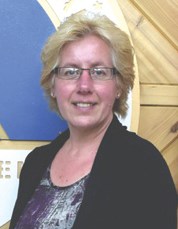While in Winnipeg to take in the 2016 FCM (Federation of Canadian Municipalities) Convention, Town of Snow Lake councillor Brenda Forsyth was surprised to learn that there was a seminar taking place that held some significance for Snow Lake and what the community is going through with respect to its payment in lieu negotiations with Hudbay.
“I ran into Jeff Precourt [former Snow Lake CAO] along with his mayor and a councillor from Teulon after one of the sessions,” said Forsyth during a presentation on the conference at the Town of Snow Lake’s June 7 regular meeting. “Jeff and I talked for a bit and then he asked me if I would like to sit in a meeting that they were having later with the CISAL group.”
The CISAL (Sustainable and Inclusive Communities in Latin America) program is a $20 million, five-year initiative (2014-2019) funded by the Government of Canada’s Department of Foreign Affairs, Trade and Development. CISAL partners work to strengthen the capacity of local governments in Colombia and Peru to successfully manage the impacts and benefits of mining development and promote sustainable economic growth.
Forsyth said that Precourt has been working with the Canadian government and for the FCM within CISAL. He was chosen by FCM because of the knowledge he gained working on the Hudbay payment in lieu agreement while in Snow Lake. She said that CISAL is focused on benefit-sharing models for local governments in relation to the mining industry within Columbia and Peru.
Giving council an overview of the CISAL meeting’s proceedings, Forsyth noted there were 30 or so people at the gathering. Included among these were Precourt and other members of this FCM department, as well as mayors from Fort St. John, BC; Red Lake, ON; Peace River, AB; and Teulon, Stonewall, Thompson, and Flin Flon, MB. There were also participants from Columbia and Peru, and Rob Winton, Hudbay’s vice-president, Manitoba Business Unit, was also in attendance.
“What all of these communities are working towards are Fair Share agreements with the resource companies in their municipalities or regions,” said Forsyth. “Three of the communities gave presentations about what has happened in their areas, including the delegate from Peru.”
Forsyth explained that the Peace River region – Fort St. John, Dawson Creek, Chetwynd, Hudson Hope, Pouce Coupe, Tumbler Ridge, Taylor and the Peace River Regional District – has a 30 year Fair Share agreement with the BC provincial government. The amount the region receives through the pact amounts to less than one per cent of the $20 billion in provincial revenue from the area over the last 10 years, but in Fort St. John’s case it equates to just over 20 per cent of the city budget.
None of the funds are used for operational purposes, said Forsyth, and she said they stressed that municipalities need to be operational without such funds.
Forsyth told council that Humboldt, Saskatchewan has a Fair Share agreement, a production-based tax within the potash industry. Forsyth said that that community is currently working toward a new agreement and has the province helping along the way.
The Humbolt delegation said a strong relationship is needed with the company in order to get a sense of partnership. The company wants to keep families in the area, so they take an interest in what, if any, concerns residents might have and they work towards meeting common goals.
Councillor Forsyth then provided an example of the financial aspects of BC Hydro’s contributions to the Fort St. John area with respect to the $8.3-billion, eight-year Site C Hydro Dam Project.
BC Hydro will provide $1 million per year to the city during construction, which will increase by 3.5 per cent each year.
BC Hydro will also contribute $100,000 per year for eight years to a community fund to assist non-profit agencies in the Peace Region, another $250,000 to local non-profits that provide emergency and transitional housing services, and $75,000 in 2016 to support local charities identified by the city.
Furthermore, BC Hydro will fund one additional police officer to be based out of the Fort St. John RCMP detachment, and will also conduct regular traffic monitoring on local roads near the project. Forsyth added that it took over a year to negotiate the Site C Fair Share agreement.
In Peru, Forsyth explained, companies pay royalties, 50 per cent of which go to the federal government, 40 per cent to the provincial government, and 10 per cent to municipalities. The royalties are used to fund economic and social growth.
“They use the money for projects (65 per cent), infrastructure/roads (20 per cent), investing in business for the community (10 per cent) and also for sustainability studies (five per cent).”
At the end of her presentation, Forsyth told her council colleagues that she felt they should begin the process of partnering with FCM and exploring this type of funding model.
In an email the following day, she gave a personal opinion: “I really think that this is an opportunity for Snow Lake to grow a good working relationship with Hudbay, to get some sort of legacy/fair share agreement talks started. We have to begin working towards something and if we can get some help and advice from FCM, then we need to explore it.”
My Take on Snow Lake is published Fridays.




